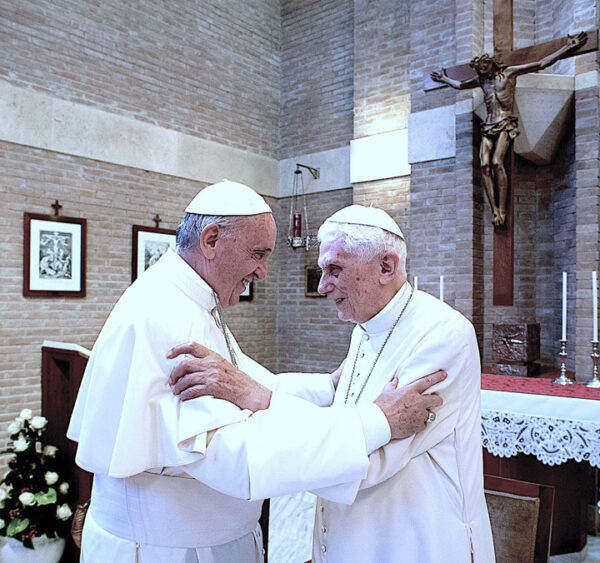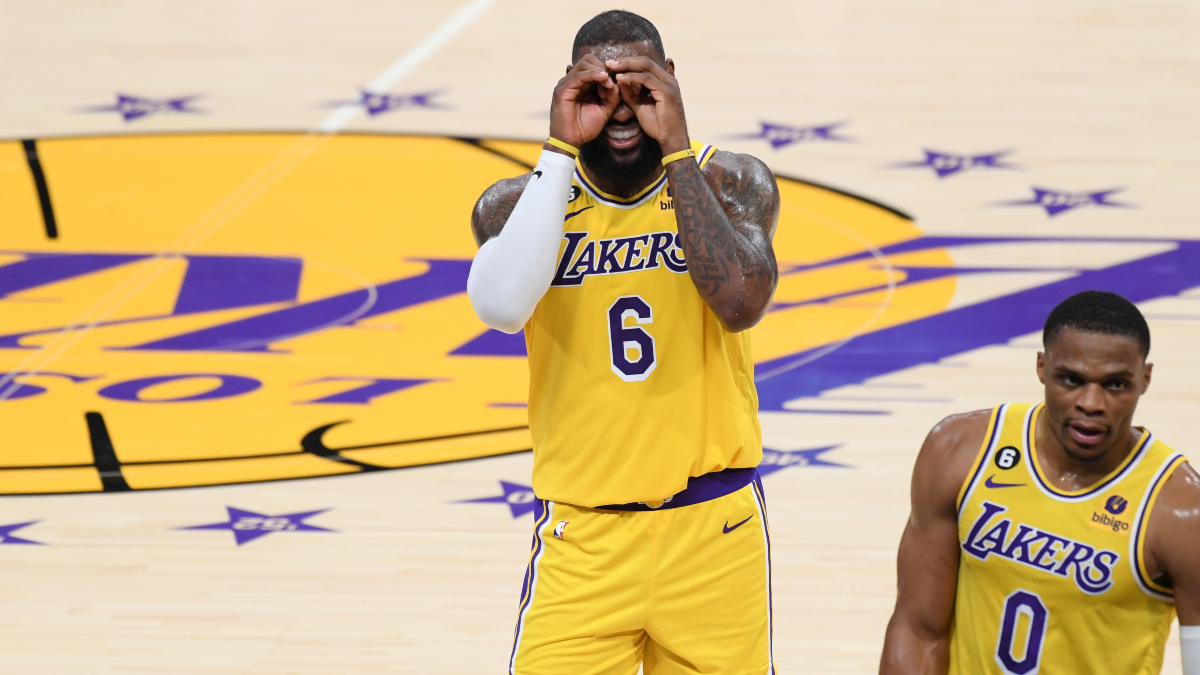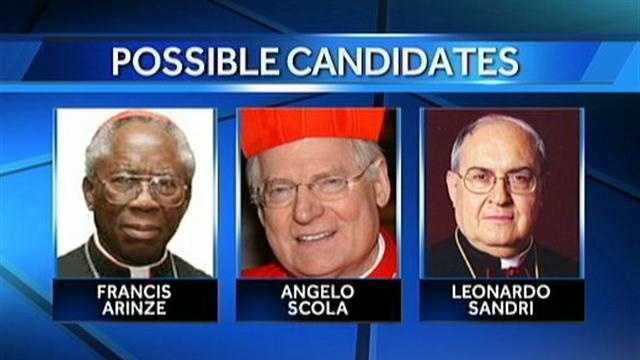The Next Pope: Predicting The Future Of The Papacy And Potential Successors

Table of Contents
Key Factors Influencing the Choice of the Next Pope
Several crucial factors will undoubtedly shape the selection of the next Pope. Understanding these factors is vital to comprehending the potential trajectory of the Papacy.
Pope Francis's Legacy and its Impact
Pope Francis's papacy has been marked by significant reforms and a renewed emphasis on social justice, ecumenism, and a more inclusive Church image. His legacy will undeniably influence the selection of his successor.
- Reforms: His reforms, such as streamlining Vatican bureaucracy and promoting a more decentralized Church structure, will be considered. Will his successor continue these efforts, or will a different approach be taken?
- Social Justice: His strong emphasis on social justice and care for the poor and marginalized has resonated with many. Will the next Pope maintain this focus, or will other priorities emerge?
- Ecumenism: His efforts to foster better relations with other Christian denominations and faith traditions will shape the selection criteria. Will the next Pope continue building bridges, or will there be a shift in interfaith relations?
- Church Image: His more approachable and less formal style has modernized the image of the Papacy. This might influence the selection of a successor with similar communication skills and charisma.
The theological shifts under Francis, like a greater emphasis on synodality and a more decentralized approach to governance, will likely influence the direction of future theological discussions and appointments. His emphasis on Latin American concerns may also affect the geographical origin of future Popes.
The Role of the College of Cardinals
The College of Cardinals, the body responsible for electing the next Pope, plays a pivotal role in the papal succession process. Its composition, reflecting a diversity of ages, geographical origins, and theological viewpoints, significantly impacts the outcome of the Conclave.
- Composition: The age distribution within the College is crucial, with younger cardinals potentially holding more influence in the future. The geographical distribution, representing various regions of the world, reflects the global nature of the Catholic Church. Theological viewpoints also range from more conservative to more progressive, creating diverse factions within the College.
- Voting Process: The secret ballot within the Conclave ensures a degree of anonymity, but the influence of cardinals with strong networks and established positions within the Church remains significant.
- Regional Representation: The importance of regional representation within the College reflects the global reach of the Catholic Church. A Pope from a region experiencing significant growth or facing unique challenges might be seen as a way to address the specific needs of that area.
- Unexpected Choices: History shows that Conclaves can produce surprising outcomes, with candidates emerging as frontrunners unexpectedly. This highlights the complexity of predicting the next Pope accurately.
Different theological currents within the College, from traditionalists to progressives, will vie for influence, potentially shaping the theological direction of the future Papacy.
Current Global Challenges Facing the Catholic Church
The Catholic Church faces numerous global challenges that will undoubtedly influence the criteria for selecting the next Pope.
- Secularization: Declining religious affiliation and church attendance in many parts of the world pose significant challenges.
- Internal Divisions: Theological and political divisions within the Church require a leader capable of fostering unity and dialogue.
- Ethical Challenges: Issues like climate change, economic inequality, and bioethics demand a clear and decisive moral stance from the Papacy.
- Interfaith Relations: Building bridges with other faiths and promoting interreligious dialogue is essential in a world characterized by increasing religious diversity.
- Challenges from Other Denominations: Competition from other Christian denominations and new religious movements requires innovative strategies for evangelization and outreach.
The next Pope must be a capable leader who can address these multifaceted challenges effectively, adapting the Church's approach to contemporary issues while preserving its core beliefs.
Potential Candidates for the Next Pope
Speculation about potential successors is inevitable. While predicting the future is impossible, analyzing prominent cardinals provides valuable insight.
Leading Contenders and Their Profiles
Several cardinals are frequently mentioned as potential candidates. Detailed biographies, including their backgrounds, theological viewpoints, strengths, and weaknesses, should be analyzed. (Note: Specific cardinals and their profiles would be inserted here in a complete article, respecting their privacy and avoiding biased statements.)
Regional Representation and its Significance
The geographical origin of the next Pope is a significant factor. The Church's global presence demands representation from various regions. A Pope from Africa, Asia, or Latin America would signal a continued emphasis on global outreach and a potential shift in the Church's center of gravity.
Theological and Political Leanings of Potential Candidates
Analyzing the theological positions of potential candidates reveals significant differences. Some may be more conservative, while others may be more progressive. Their potential political stances, although subtle in their expression, will impact their papacy.
Predicting the Future Direction of the Papacy
While predicting the future is inherently uncertain, we can explore potential scenarios based on current trends and challenges.
Potential Reforms and Changes
The next Pope may continue the reforms initiated by Pope Francis, possibly focusing on greater transparency within the Vatican, further decentralization of Church governance, or more inclusive approaches to Church decision-making processes.
The Papacy in the 21st Century
The 21st-century Papacy faces the challenge of adapting to a rapidly changing world. Greater dialogue with other faiths and a more nuanced approach to global issues will be crucial. The use of technology for evangelization and communication will likely be a central aspect of the next papacy.
The Papacy’s Impact on Global Affairs
The Pope's influence on global affairs will continue to be significant. The next Pope's stance on issues like climate change, poverty, and international conflict will shape the Catholic Church's role in the global arena.
Conclusion
The selection of the next Pope is a momentous occasion, full of anticipation and uncertainty. The future of the Papacy will depend on the legacy of Pope Francis, the composition of the College of Cardinals, and the pressing challenges facing the Church globally. While predicting the future is inherently difficult, analyzing potential candidates and understanding key influences allows for informed speculation. The next Pope will need to be a strong leader capable of navigating complex issues, fostering unity within the Church, and addressing the evolving needs of a globalized world. Continue following the developments within the Catholic Church to stay informed about The Next Pope and the future of the Papacy.

Featured Posts
-
 Injury Report Chicago Bulls And New York Knicks Game Preview
May 12, 2025
Injury Report Chicago Bulls And New York Knicks Game Preview
May 12, 2025 -
 Find The Bestselling Jessica Simpson Kimono Cardigan At Walmart For 29
May 12, 2025
Find The Bestselling Jessica Simpson Kimono Cardigan At Walmart For 29
May 12, 2025 -
 February 21st Nba Cavaliers Vs Knicks Game Preview Odds And Predictions
May 12, 2025
February 21st Nba Cavaliers Vs Knicks Game Preview Odds And Predictions
May 12, 2025 -
 Rochelle Humes London Fashion Week Hairstyle Debut
May 12, 2025
Rochelle Humes London Fashion Week Hairstyle Debut
May 12, 2025 -
 Possible Candidates For The Next Pope A Comprehensive Analysis
May 12, 2025
Possible Candidates For The Next Pope A Comprehensive Analysis
May 12, 2025
